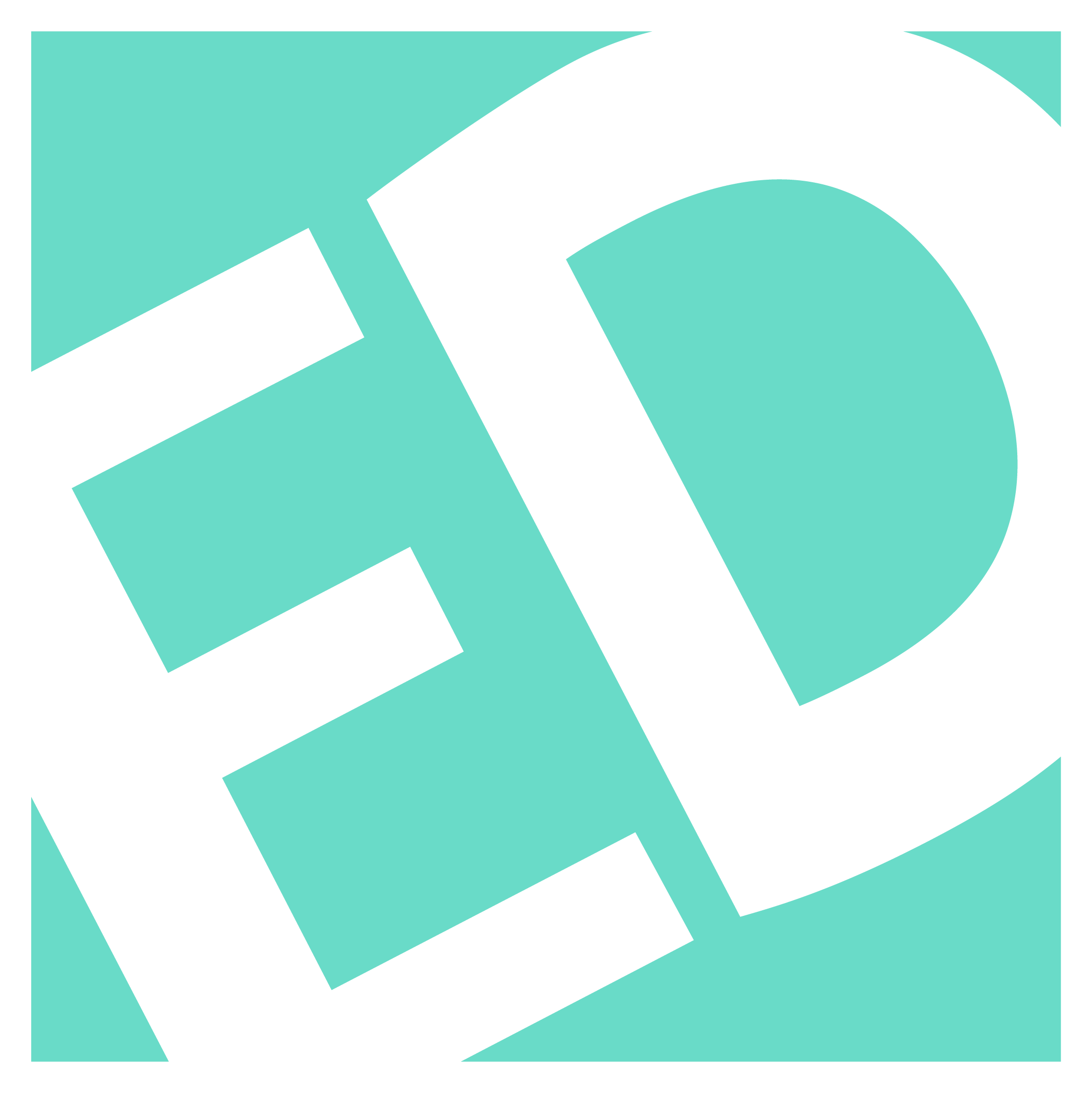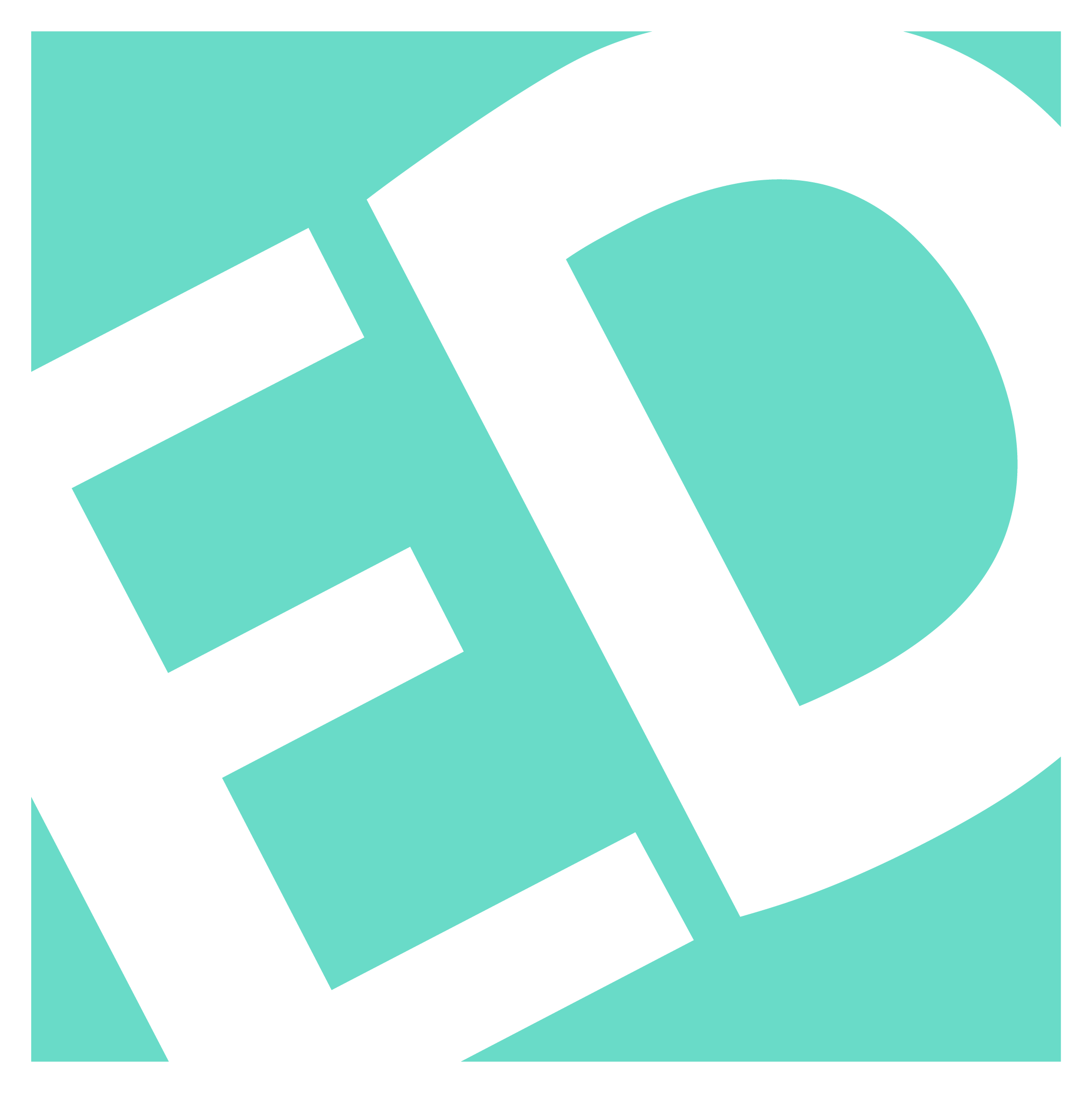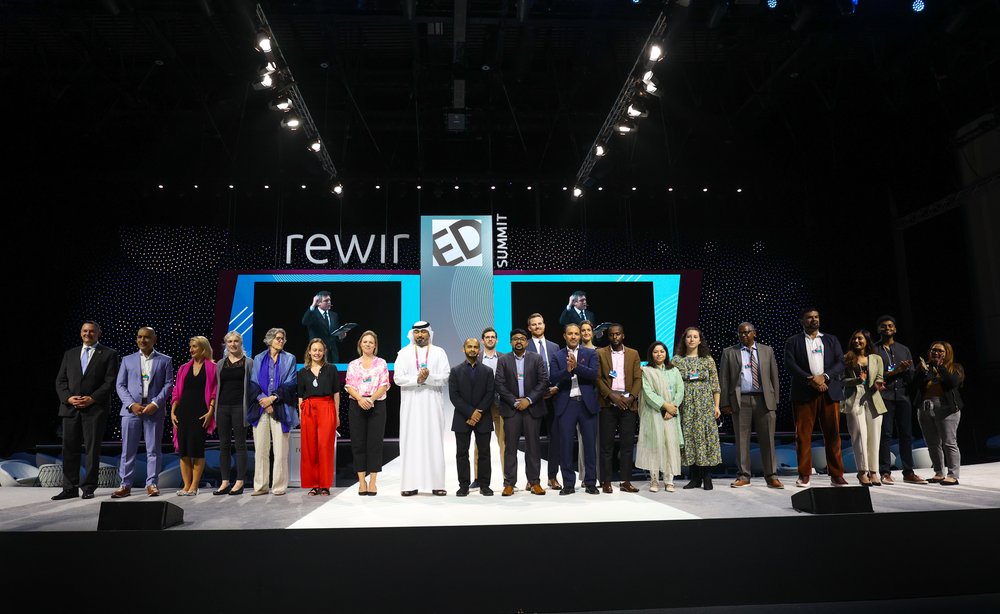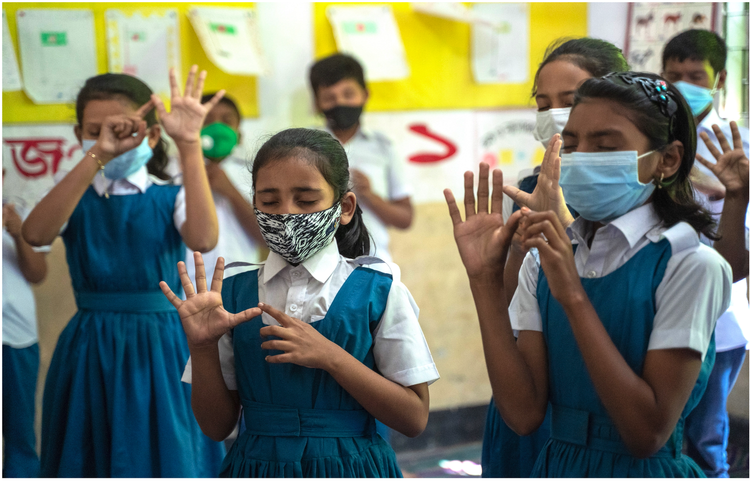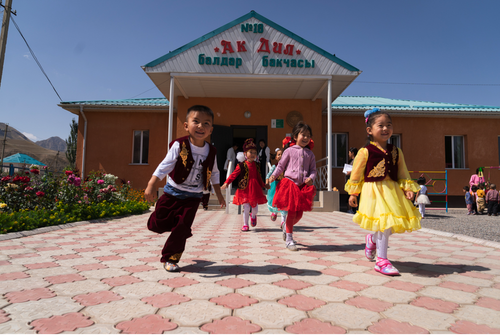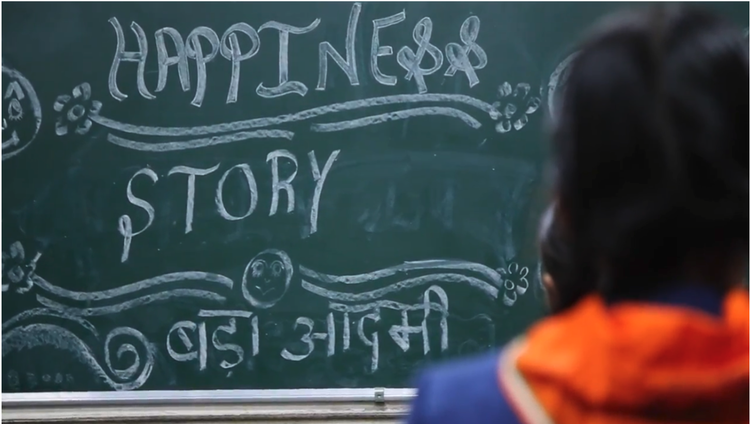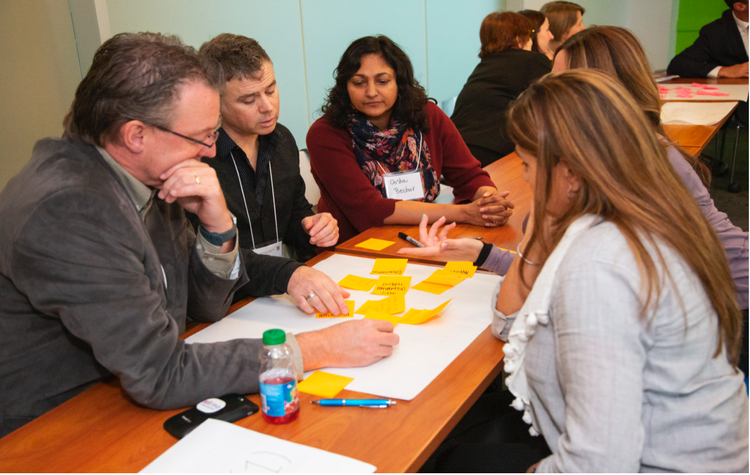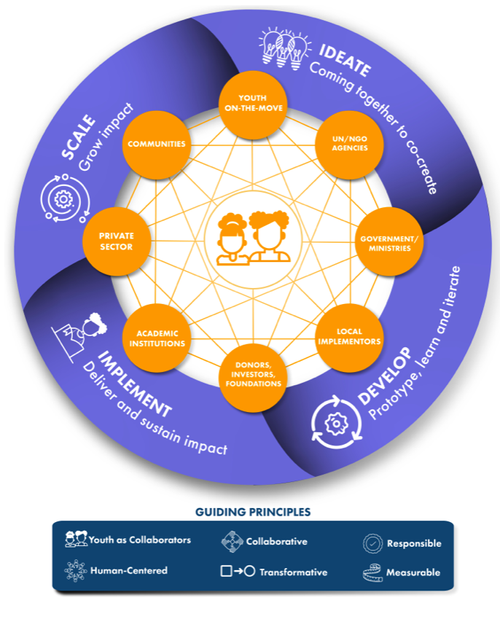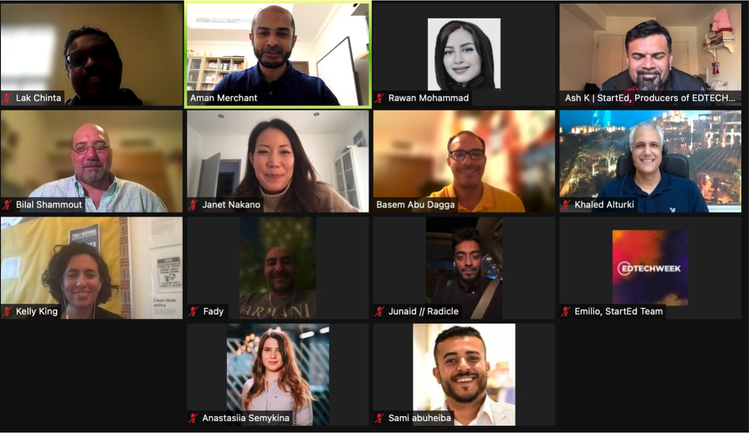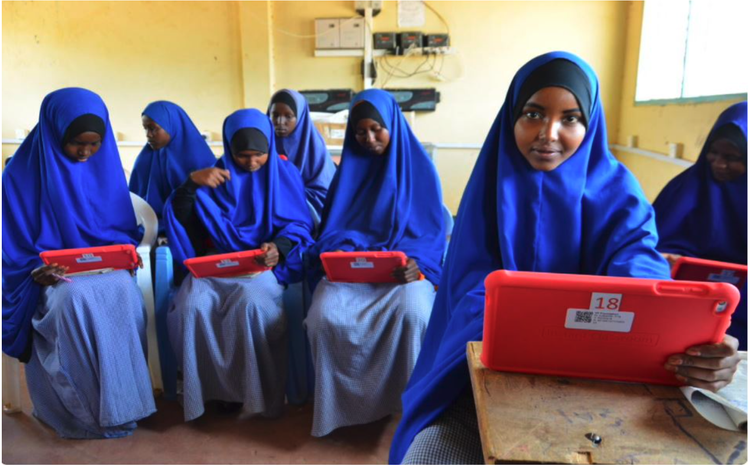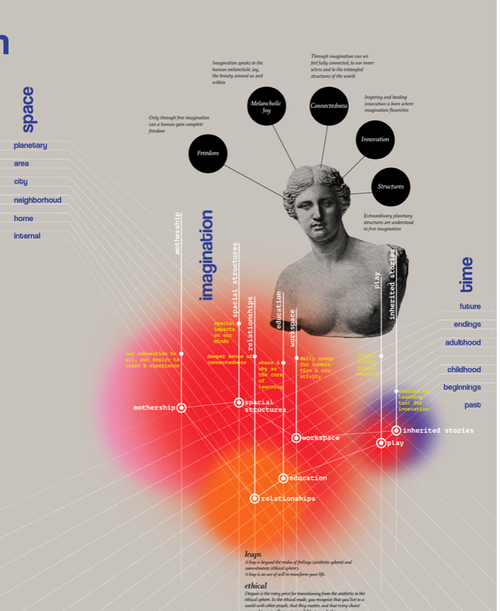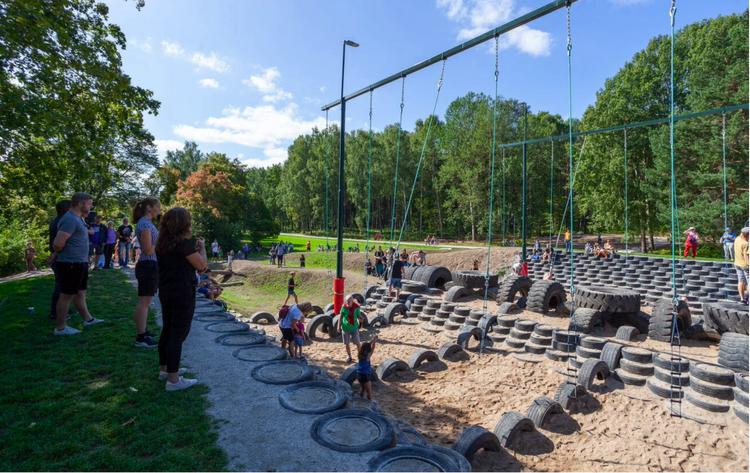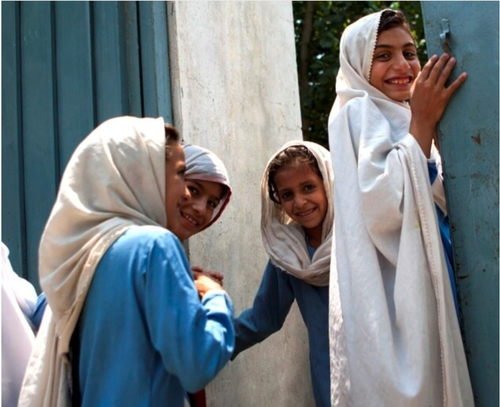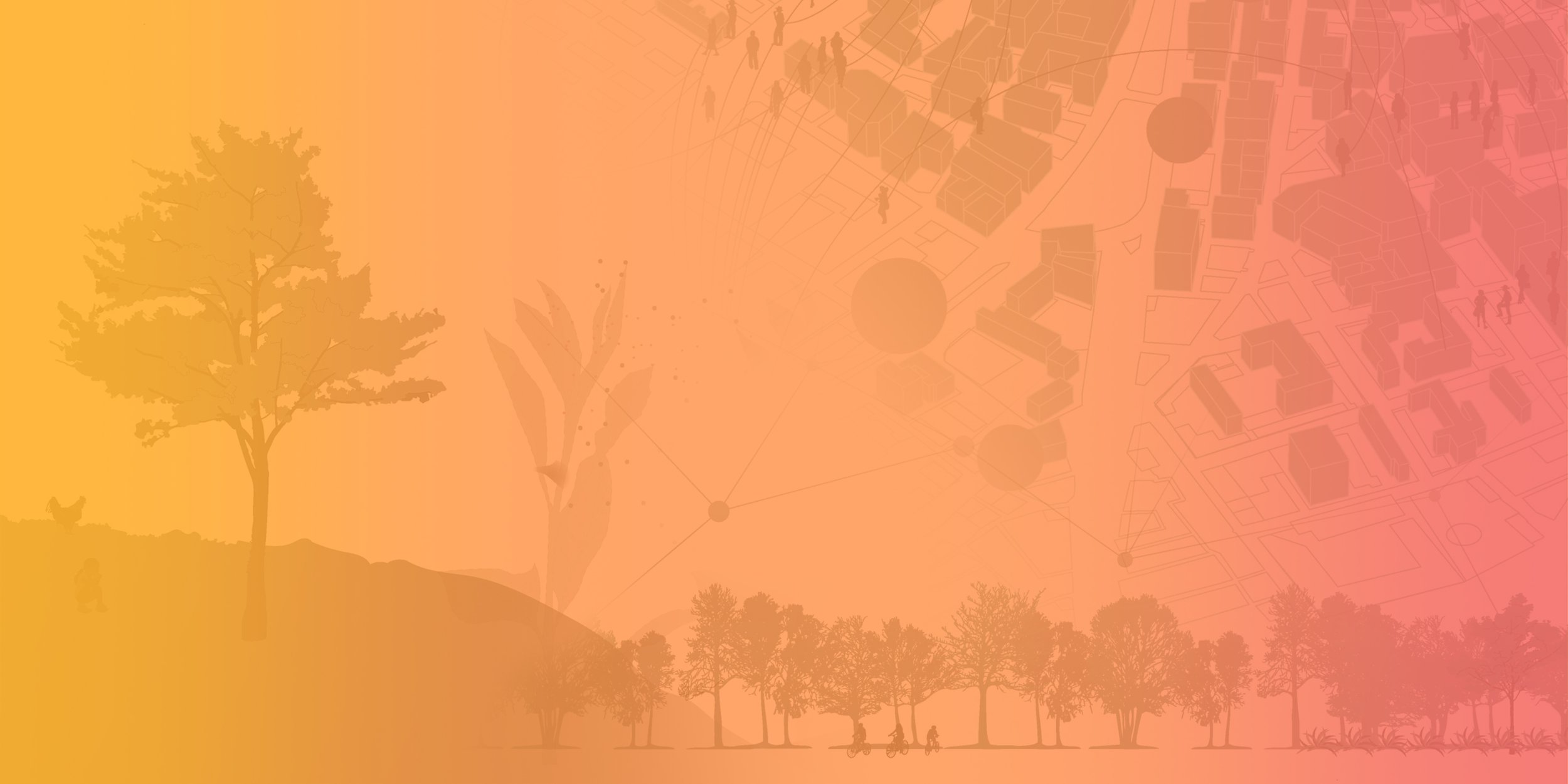
Emerging Sandbox Experiments
The Sandbox process that was launched in April 2021, with a portfolio of proposed experiment ideas under 6 provocations grew into 11 bold experiments over the course of 8 months. The Sandbox experiments were co-created with different organizations ranging from private sector/business organizations, practitioners, NGOs, and foundations to name to few. Each of these initiatives strived to test new ideas, unearth new approaches and unlock new collaborations between unlikely allies. A brief description of the Sandbox experiments can be found listed below. A more detailed description of each of the experiments can be found in the Experiments Booklet.
Seed Grant Winners
The Experiments’ Awards Ceremony on Day 2 of the RewirEd Summit, celebrated all the 11 experiments that were a part of the RewirEd Provocations process. The ceremony recognized and awarded 6 experiments a seed grant of USD 50,000 each as funding from Dubai Cares to continue their transformational work.
Provocation: #2 Wellbeing in Education
Partners Involved: BRAC Social Innovation Lab, BRAC Institute of Educational Development, A network of schools
Experiment 1
Integrating Wellbeing into Rural School Outcomes
The majority of education systems in the Global South continue to be driven by purely academic outcomes. Whenever there are policies formulated or budgets allocated, the efforts designed are intended to improve the academic performance of the students. Concerns outside of this domain, such as student well-being, are often sidelined.
The objective of this experiment is to create a safe space within schools in peri-urban and rural Bangladesh for practicing well-being. During the sandbox phase of the experiment, various resources were developed to raise awareness about the need for mental, physical, and environmental well-being for 2 key stakeholders: students and teachers. As a result of the initial experiment, an activity-based journal book has been developed, called Amar Golpo ('My Story') for Grade 4 students to help them reflect on their emotional state and understand best practices towards nurturing their mental, physical, and environmental well-being. For teachers, 4 training sessions have been designed with support from BRAC Institute of Educational Development (BIED). During the experiment phase, BRAC delivered virtual training on mental well-being for 30 teachers from local schools in Bangladesh. In the next phase of the experiment, we will create a well-being ecosystem in 5 rural/peri-urban schools.
Experiment 2
Connecting Education with Play, Pluralism & the Planet
How might we prepare the next generation of climate-literate, climate-resilient, and climate compassionate educators and learners around the world by 2030?
Climate change is one of the most severe challenges facing our planet during the 21st century. And yet, we still do not seem to have practical leadership within the global education sector about what we can do about it moving forward – especially for teachers and learners living in contexts where marginalization continues to keep generations in cycles of poverty every day.
This experiment aims to co-create a collective response to climate change in the education sector through a new, multi-partner approach. Conceived by a growing coalition of leading organizations in the field, the ambition is to support the wider educational ecosystem to take concrete, practical, and meaningful action for climate justice through education. Ultimately, the group aims to identify and bring together new stakeholders into a meaningful action-oriented movement that can better help those on the fringes of educational systems be more included in the climate justice movement.
Provocation: #1 Learning with Nature, #5 Humane Education
Partners Involved: Aga Khan Foundation, Lego Foundation, Global Centre for Pluralism, Generation Earthshot, Education Cannot Wait, Porticus, The Earthshot Prize
Provocation: #4 Collaboration for Impact
Partners Involved: #LearningPlanet, The Global Education Leaders’ Partnership (GELP), Dream a Dream
Experiment 3
Learning Ecosystems: Towards the New Paradigm
The experiment seeks to capitalize on existing knowledge of ecosystem building, in order to create mechanisms to share and contextualize this knowledge to allow new cities to create their own thriving learning ecosystems.
The main stakeholders directly affected by this experiment are the actors in the cities’ learning ecosystem, including policymakers, researchers, teachers, students (adult and youth, formal and non-formal), employers, civil society, entrepreneurs, and the city’s residents, alongside future city leaders who want to learn from a range of successful city ecosystems to create their own.
The orientation of the experiment is toward the Global South. By examining emerging ecosystems in India, Africa, and Latin America, and facilitating shared reflection between those ecosystems and others in the Global North, the plan is to identify models that are already being practiced at scale or hold very serious potential to be so, in order to give confidence that these might move to the centre of future policy-making, rather than remaining marginal innovations.
Experiment 4
Ecosystem Builders Learning Alliance
The Ecosystem Builders Alliance was conceived by a group of five bold and committed organizations, who are each acting as catalysts connecting diverse stakeholders—building large-scale, long-term initiatives for (eco)systemic transformation in education in their respective contexts. This experiment aims to explore how we can build an emerging field of expertise for transforming education systems through shifts in power. It aims to bring together organizations and leaders from across the globe who are each pioneering the unusual role of catalysts, bridging divides and building alliances in their regional or national education systems, to transform education systems for the 21st century. The focus is on revealing, interrogating, refining, and disseminating the key ingredients required to catalyze change in education.
In 2022, this alliance aims to co-design a ‘Transformation Lab’ to test out different types of facilitated convening, peer-support, and co-developed/curated open-source tools and resources. If effective, the process will expand not only the number of those pursuing transformation of this kind but also deepen the impact of those already on their journey.
Provocation: #4 Collaboration for Impact
Partners Involved: Big Change, Innovation Unit, Remake Learning, People for Education, Learning Creates - Australia
Provocation: #3 Learning Beyond School, #4 Collaboration for Impact
Partners Involved: Net Hope, War Child, Mercy Corps
Experiment 4
EdTech Collective Action Framework for Youth on the move
Meeting the needs of youth on-the-move is therefore a long-term but complex commitment that requires us to reimagine how diverse groups of stakeholders come together, contribute, and collaborate with and for youth. This requires us to build frameworks that would enable long-term, collective commitments and transformative collaboration between diverse groups of stakeholders.
The Collective Action Framework (CAF) provides the much-needed practical guidance for multi-stakeholder, cross-sector collaboration. It is designed to transform the approach to meeting the needs of youth on-the-move from single-actor and fragmented interventions or transactional partnerships to an inclusive, co-creation-focused, ecosystem-based approach that addresses systemic challenges in a holistic and sustainable way in partnership with youth. A framework is a working tool meant to guide any multi-stakeholder coalition in their collaboration and co-creation journeys, helping them build, implement, and sustain innovative programs.
Experiment 6
ReimaginED - An EdTech Collective for MENA
As the primary edtech-focused experiment in the RewirEd Sandbox, the ReimaginED Collective Venture Studio takes a founder- and impact-focused approach to building mission-driven education technology (edtech) ventures in the MENA region and beyond. The venture studio will address these opportunities through a thesis-driven approach that identifies the key market opportunities for new ventures in the MENA region, initially focused on the transition to employment from high school and postsecondary education. Leveraging data points that have emerged from successfully running the first MENA-focused edtech Bootcamp in Oct/Nov 2021, the experiment will progress to its second stage in Q1/2022 with the identification of critical market gaps in the provision of upper high school and post-secondary education, especially focused on the issues that prevent learners from gaining the skills and other assets required for success in their careers and the economy of the future. This analysis will be expanded through deep engagement with a pioneering sandbox partnership of prospective customers, including educational institutions, employers, learners and regulators as needed.
Supported by investment capital, a global talent pool, and deep local connections, the venture studio aims to seed six new ventures each year, driven by an impact fund to sustain studio operations and supplemented by additional revenue from external advisory services.
Provocation: #3 Learning Beyond School, #4 Collaboration for Impact
Partners Involved: Aster Global Partners, Common Group, ReimaginED Capital, StartEd
The Finalists
Experiment 7
Connected Education
Owing to barriers of access and inclusion, refugee-hosting schools and communities are not equipped with the digital skills, knowledge, and resources needed to foster learners who can succeed in an increasingly digital world. Refugee-hosting schools are usually not part of national prioritizations, and as a result global and national digital learning initiatives often are not designed for low-resource contexts. This means these schools and communities are systematically left out from benefiting from digital educational advances, creating an increasing digital divide between communities. The experiment aims to create resources, such as a digital playbook, for ensuring refugees, and marginalized communities are meaningfully included within digital learning investments and initiatives. These resources will be aimed at providing guidance for a number of stakeholders including governments, NGOs, and funders.
Provocation: #4 Collaboration for Impact, #5 Humane Education
Partners Involved: UNHCR (partners to be confirmed)
Provocation: #3 Learning Beyond School, #5 Humane Education
Partners Involved: Hongik University (Seoul), Lingnan University (Hong Kong), Dark Matter Labs
Experiment 8
The Wonder of Imagination
As human beings, we have immense vivid minds coupled with a wonderful and broad approach to ideas, solutions, and innovations. We also have dreams and aspirations, that in truly artful ways of expressing ourselves, have helped us live with the uncertainty that comes with life itself. Still, that beautiful capacity of being able to imagine is heavily threatened in a damaged world built on egoistic mindsets, hardcore economic values and a fake realization of richness. What would it mean for the imagination to be valued as a civic right? We ask this question because, in this all-or-nothing transition from crisis to wellbeing, we are interested in exploring and testing a wider theory of change. We suggest that committing to imagination and innovation can not only help make this shift, but also foster a sense of belonging to an extraordinary world.
Experiment 9
Reflective Measuring for Learning Environments
If “reflective measuring” can shift the way we plan, finance, and govern our outdoor school environments. The mission is to enable these environments to scaffold learning and wellbeing - using for example, play and balanced risk-taking. This experiment is developing a set of tools and related participatory practices that can be brought together on a platform. The first iteration of the tools and processes has already been tested through a simple beta version of the platform. The prototype will be iterated in the coming months.
Provocations: #1 Learning with Nature, #2 Well-Being in Education, #6 Novel Financial Infrastructures
Partners Involved: LeadforESD, Mind//Shift, Dark Matter Labs
Provocation: #3 Learning beyond School
Partners Involved: Educate!, Schools & Ministries of Education from countries in Africa (TBC)
Experiment 10
Driving Solutions for Curriculum Reform in Africa
Educate! partners with youth, schools, and governments to prepare young people in Africa with the entrepreneurship and transferable skills to succeed in today’s economy. This experiment seeks to address the challenge of how to build a government engagement and advocacy strategy around curriculum reform that is seen as valuable; ensures the value increases over the course of the engagement and leads to political support for policy change.
Experiment 11
Girls as Leaders of Tomorrow
To this day, Pakistan has no concrete policy, strategic direction, and action plan to address the challenges & barriers for girls’ education in the country. This is due to a lack of understanding that girls face many barriers that require special attention and interventions. This experiment aims to highlight and mainstream the issue of girls’ education by creating a movement at the senior government resulting in increased investment in Girls Education by the Government of Pakistan. This will also create a mechanism to track the development and progress made with support from all stakeholders. If this experiment is successful, for the first time in Pakistan, an Action Plan for Girls Education will be developed, bringing together stakeholders such as youth and ministers of education who have not worked together in the past.
Provocation: #4 Collaboration for Impact
Partners Involved: Pakistan Alliance for Girls Education, Youth representatives, Federal & Provincial Ministries of Education

